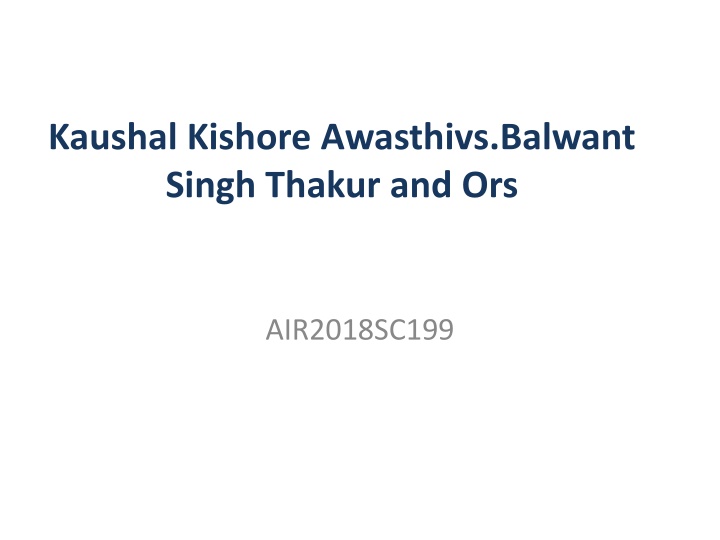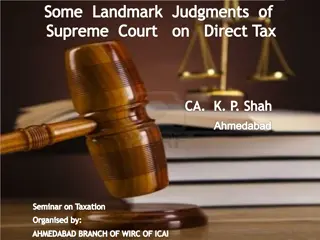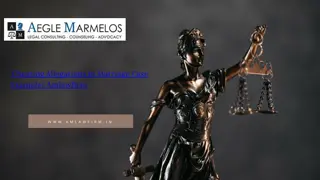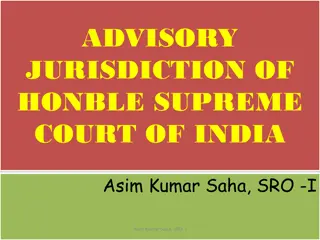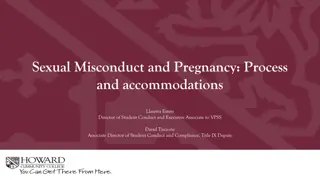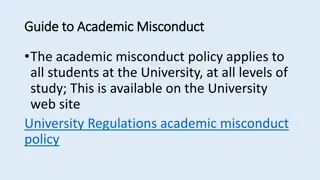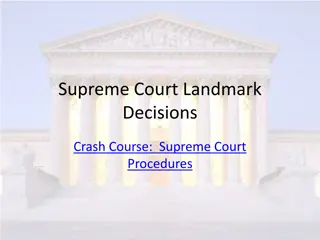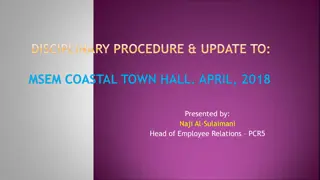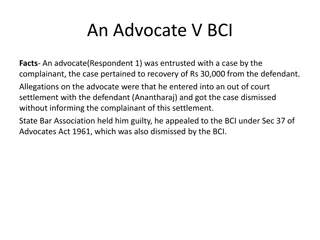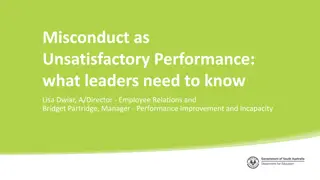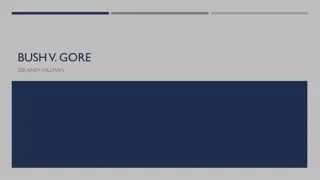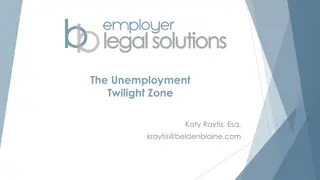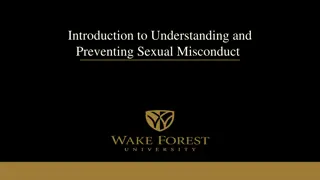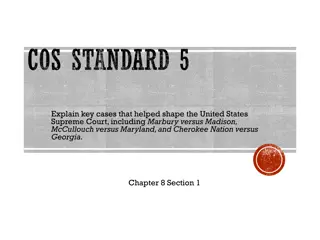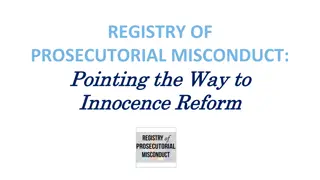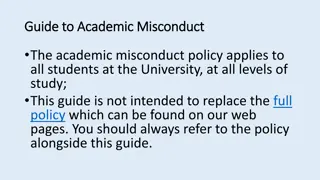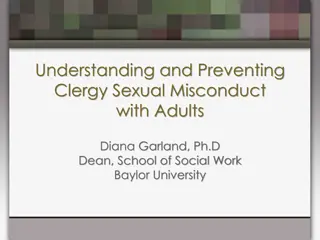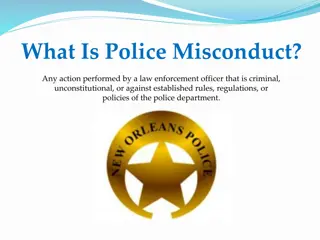Professional Misconduct Allegations Against Advocate: Review by Supreme Court
The case involves a complaint of professional misconduct against an advocate, leading to his license suspension. The appellant has appealed to the Supreme Court, arguing that the allegations do not constitute misconduct as per Advocates Act rules. The background of the case includes a family dispute over ancestral property and objections raised during a land sale transaction. The appellant's defense focuses on repayment and security issues regarding the land sale.
Download Presentation

Please find below an Image/Link to download the presentation.
The content on the website is provided AS IS for your information and personal use only. It may not be sold, licensed, or shared on other websites without obtaining consent from the author.If you encounter any issues during the download, it is possible that the publisher has removed the file from their server.
You are allowed to download the files provided on this website for personal or commercial use, subject to the condition that they are used lawfully. All files are the property of their respective owners.
The content on the website is provided AS IS for your information and personal use only. It may not be sold, licensed, or shared on other websites without obtaining consent from the author.
E N D
Presentation Transcript
Kaushal Kishore Awasthivs.Balwant Singh Thakur and Ors AIR2018SC199
Facts The respondent filed a complaint with the Bar Council of Chhattisgarh against the Appellant-advocate alleging that the appellant had acted in a manner which amounts to professional misconduct. The Appellant was found guilty of professional misconduct and imposed punishment by suspending his license of practice for a period of two years. The Appellant appealed to the BCI and the BCI affirmed the finding of the State Bar Council but reduced the term of suspension of license from 2 years to one year along with cost of Rs. 25,000/- to be paid to the complainant. The appellant has now appealed to the Supreme Court.
Defence of the appellant He contended that even if the allegations contained in the complaint are taken to be correct on its face value, these do not amount to committing any misconduct as per the provisions of the Advocates Act and Rules framed thereunder, he relied on Rule 22 of Section II of Chapter VII of the BCI Rules.
Background of the case There was a family dispute between the complainant and his brothers, in respect of a property with respect to an ancestral property. After the death of their father on 11.10.1989, the said property was divided by the three brothers equally. However, it transpired that before his death, one of the brothers of the complainant influenced his father and got registered the said property in the name of the complainant's nephew, i.e., son of that brothers vide sale deed dated 25.07.1989. The complainant approached the Appellant, who is an Advocate, for filing the Suit for declaration to declare that the sale deed prepared fraudulently. In the suit, the parties settled the matter and requested the Court for division of the property. This resulted in passing of decree dated 24.10.1994 by the Court in which the complainant was declared owner of 0.03 acres along with kutcha house out of the disputed property.
Cont The complainant suffered a financial crunch and he decided to sell his share of land to one Mr. Narsinghmal for a sum of Rs. 30,000/- and for the purpose of registration of sale deed, he produced the earlier sale deed before the office of the Deputy Registrar where the appellant produced objection letter against the proposed sale deed and objected for registration of the said sale deed on the ground that the complainant did not have full ownership of the proposed land and the market value was also shown less in the said sale deed. It was stated by the complainant that the appellant was not an interested party in the said sale deed This act of the Appellant in appearing before the office of the Deputy Registrar and objecting to the registration of sale deed was labelled as professional misconduct by alleging that the appellant had paid a sum of Rs. 20,000 to the complainant in 1996 and a sum of Rs. 20,000 to the son of the complainant in 1999 and for repayment of the said amount, the complainant had offered half share of the subject land as security. His justification for raising objection, therefore, was that since the land was being sold without clearing his debt, it could not be done.
RULE 22 Rule 22 of Chapter II of the Standards of Professional Conduct and Etiquette of the BCI. An advocate shall not, directly or indirectly, bid for or purchases, either in his own name or in any other name, for his own benefit or for the benefit of any other person, any property sold in the execution of a decree or order in any suit, appeal or other proceeding in which he was in any way professionally engaged. This prohibition, however, does not prevent an advocate from bidding for or purchasing for his client any property which his client may himself legally bid for or purchase, provided the Advocate is expressly authorized in writing in this behalf
Decision of the Supreme Court The court held that the complainant was selling the property to the intending buyer which was an arrangement between them unconnected with any legal proceedings. The said property was not being sold in execution of any decree, in which proceedings the appellant was engaged. The earlier suit had resulted into passing of decree and the proceedings had concluded. It is much thereafter that the complainant intended to sell the property in question when he found himself in need of money. It is this sale which the appellant tried to interdict. He was not doing so in the capacity of an advocate. This act has nothing to do with the professional conduct of the Appellant. The SC allowed the appeal and set the order of the BCI aside.
